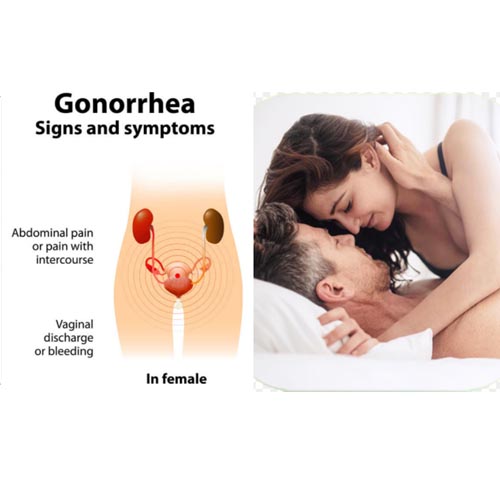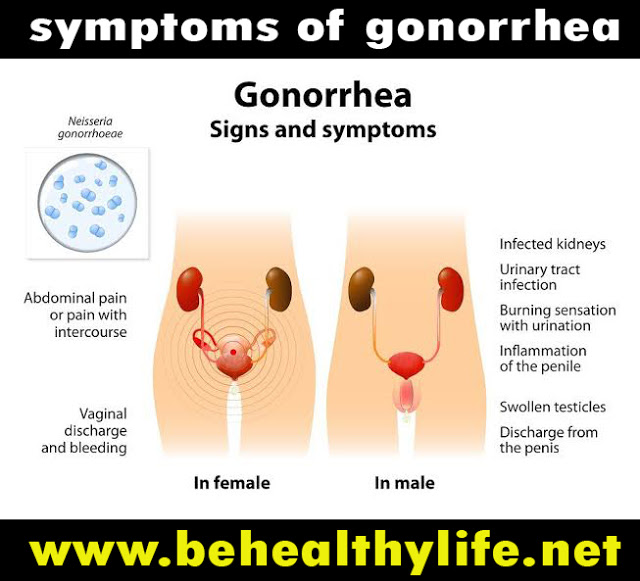Gonorrhea is a disease sexually transmitted through unprotected sex with an infected person. Sexual activity is not limited to sexual intercourse wherein penis is inserted into the vagina or anus. Sexual activity involves all forms of sexual contact including use of sexual toys, oral sex and kissing; CANNOT be transmitted from toilet seats.
The bacteria (Neisseria gonorrhea) causing Gonorrhea cannot live outside the body for more than few minutes but needs wet areas of the body like urethra (tubes that drains urine from the bladder), vagina, cervix, throat and rectum. This is why you can get gonorrhea by kissing or having anal sex with an infected person.
SYMPTOMS OF GONORRHEA IN WOMEN
Women do not readily show any symptoms of gonorrhea especially at the early stage of the disease. That is why it often becomes complicated before women present in the hospital. The following symptoms are seen in women:

- Purulent vagina discharge
- Purulent urethral discharge
- Pain when a woman is urinating
- Mild lower abdominal pain
- Sore throat
SYMPTOMS OF GONORRHEA IN MEN
- Profuse and purulent penile discharge
- Pain when urinating
- Swelling of the penis
- Pain and swelling behind the scrotum
Gonorrhea if not treated early can cause heart problem, brain problem, joint problem and infertility.

YOUR DOCTOR MAY REQUEST FOR THE FOLLOWING TESTS
- Culture of the vagina or penile discharge
- Full blood count
- Erythrocyte Sedimentation Rate
- Serologic tests eg ELISA
- Urine analysis
TREATMENT OF GONORRHEA
Treatment of gonorrhea is medical. Your doctor will place you on antibiotics at recommended dose. Some times, there could be treatment failure. If this happens, go back to your doctor for further evaluation.
HOW TO PREVENT GONORRHEA
1. Limit your sexual partners
2. Avoid risky sexual partner.
3. Make sure you are properly treated whenever you have STI by a competent and certified health professional to prevent re-occurrence.
4. Complete your dosage. Do not stop taking your drug because you are relieved. Discontinue the medication only when you have taken it for the right time as prescribed by your doctor or pharmacist.
5. Do not have sex with your partner until a week after you are treated and symptoms free.
6. Abstinence is the surest bet.

Dr. Adeyemo Olusola is a medical graduate of Olabisi Onabanjo University, Ogun State, Nigeria along with certificate in advanced diploma in Principles of Nutrition, Management and Leadership, Dublin and Certificate in Global Health from London School of Hygiene and Tropical Medicine. In addition to his numerous certifications, he is a certified Telemedicine Physician from Harvard Medical School, USA. He is an avid reader of books from different oases of life, expert in data analysis. “So many a time, I have seen people die avoidable death because of lack of knowledge or information, falling victim of fate. There is then a necessity laid on us to help arm our society to the teeth, as a healthy society cannot be detached from an informed one. Hence, there is need for healthgist.net. We hope you will have a wonderful stay on our website.”
